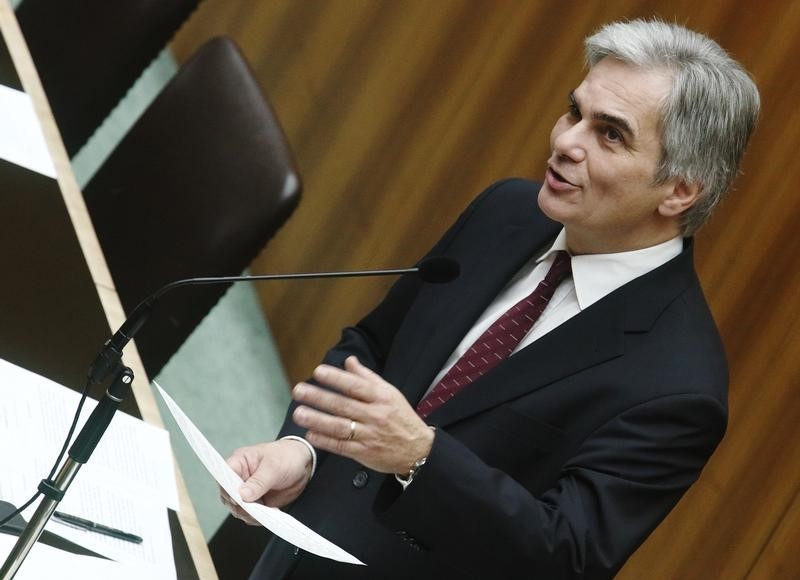VIENNA (Reuters) - Austrian Chancellor Werner Faymann criticised what he called German leader Angela Merkel's "wait-and-see" approach to tackling Europe's economic problems and demanded a more aggressive push to combat unemployment in Europe.
In an interview published in the Kurier paper, the Social Democrat also expressed sympathy for leftist Greek Prime Minister Alexis Tsipras, whom he will meet in Vienna on Monday, but reiterated Austria's opposition to forgiving Greek state debt.
Faymann was critical of the European Union's approach to fighting unemployment, which he described as too timid "because everything German Chancellor Angela Merkel supports is a bit late".
He said Germany was underestimating the mid-term impact of consumers losing purchasing power and said a raft of measures was needed to tackle Europe's economic problems. These include fighting tax fraud, taxing the wealthy more, and issuing "joint bonds", he said, without specifying who would sell common debt.
Asked if job-boosting measures were failing because of Germany, he said: "They are failing due to Angela Merkel's wait-and-see plan ... If Germany took the offensive more, it would be ideal for Austria, for instance for automotive suppliers."
Austria has an extensive network of suppliers to Germany's auto industry. Its export-dependent economy has stagnated for two quarters in a row and the number of jobless hit a record above 400,000 in January.
Still, the jobless rate stood at 4.9 percent December under harmonised EU standards, the second lowest behind Germany.
Germany, which has balanced its budget, has led calls for fiscal discipline across the euro zone and resisted appeals to increase spending in order to boost the European economy.
Faymann said Tsipras understood Austria could not write down the 8-9 billion euros in loans and guarantees it had provided Athens as part of a rescue package. "Who should pay for that? But I support negotiations on technical loan conditions so that the country has more leeway to get out of the crisis."

He opposed the idea of Greece's leaving the euro zone and said Tsipras's plan to fight corruption and tax fraud "is more logical than saying you have to cut (spending) or privatise amid the crisis."